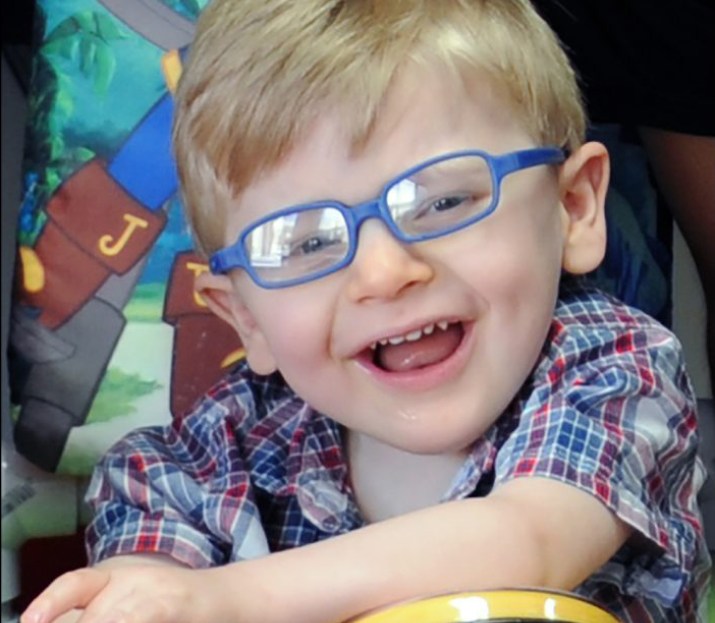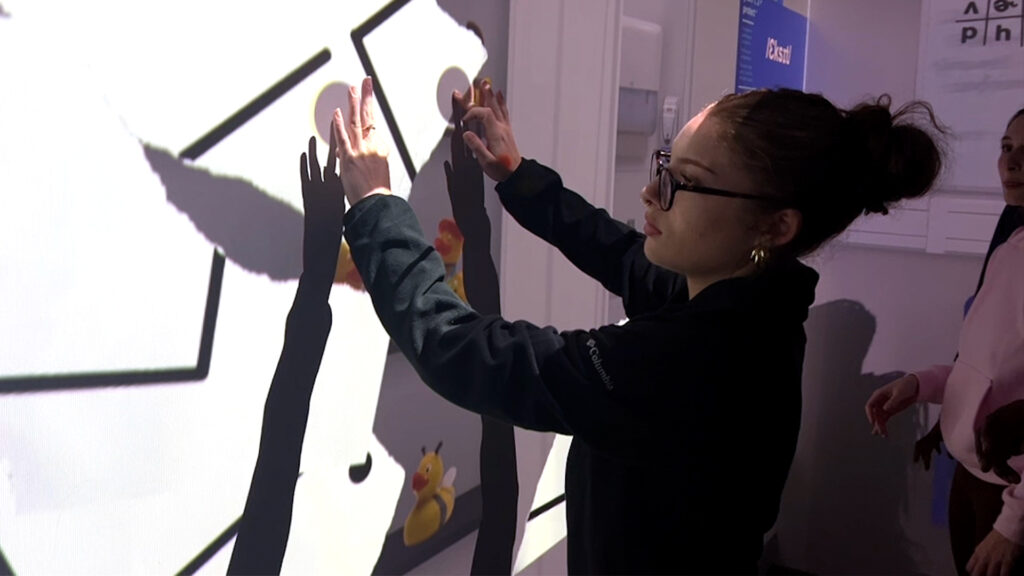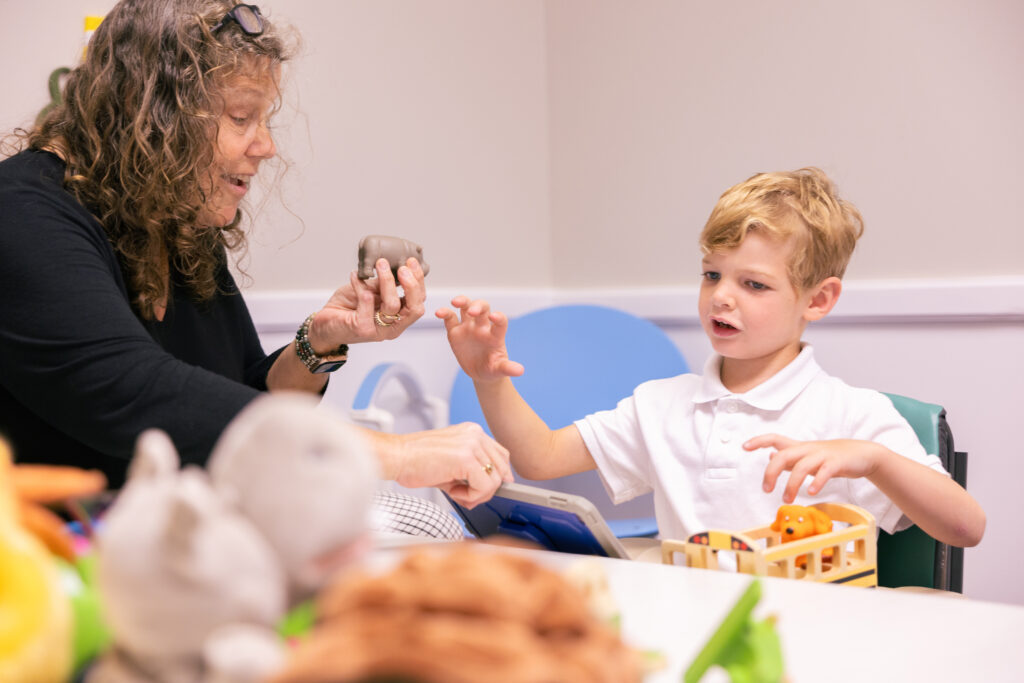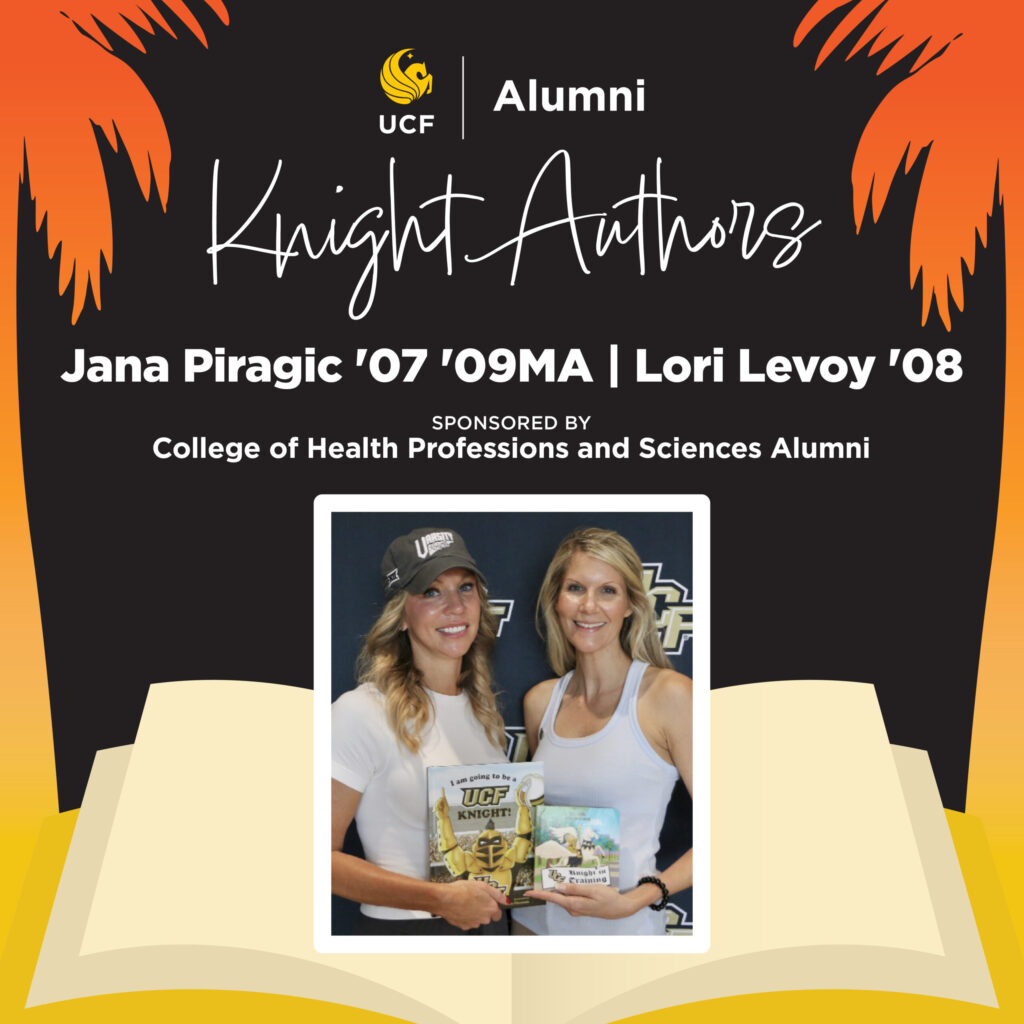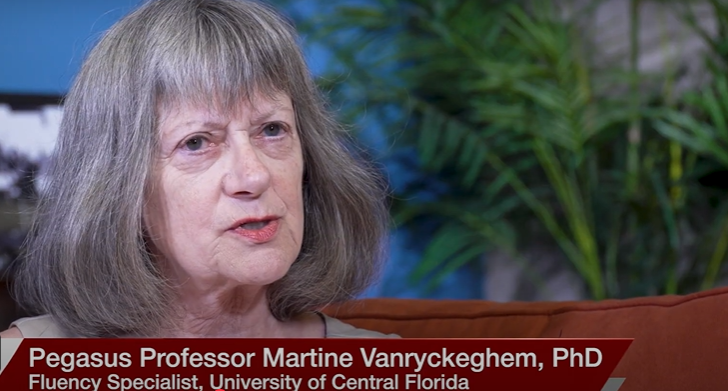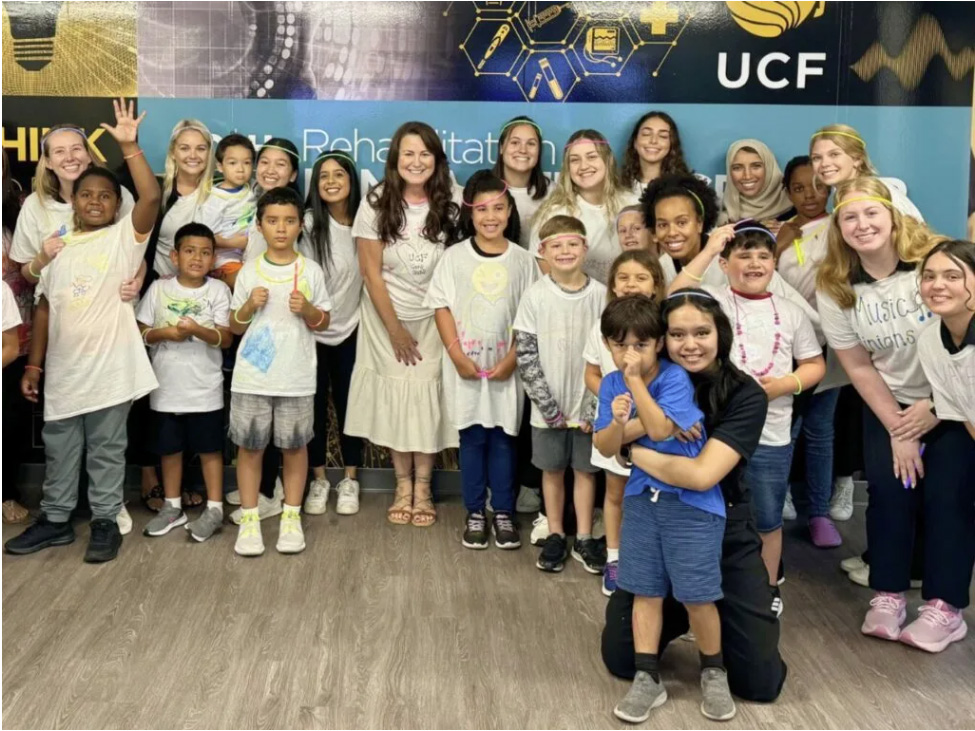With his fair skin, blond hair and delicate features, Colin David looks like a little angel. He behaves like an angel, too, said his parents Brian ‘07 and Kelly ’08 ‘13. At 2, Colin is non-verbal, but when he smiles – which is most of the time – he lights up the room. Read how Colin is shining a little brighter, thanks to a collaboration between the Department of Communication Sciences and Disorders and the Department of Health Professions.
When Colin was born, Kelly and Brian were living in Kansas, where Kelly was a speech-language pathologist and Brian worked as an art director. Colin was diagnosed with albinism (a lack of pigment in the skin and hair) shortly after birth. But, as the days went by, Kelly and Brian noticed that “he had poor muscle tone and he was not holding his head up,” Kelly said. Genetic testing revealed that Colin also had Angelman syndrome.
Angelman syndrome, named after physician Harry Angelman, is a rare neuro-genetic disorder that occurs in one in 15,000 live births, according to the Foundation for Angelman Syndrome Therapeutics. Characteristics of the disorder include developmental delay, lack of speech, seizures and walking and balance disorders.
Kelly had heard of Angelman syndrome when she was a student at UCF. She majored in biology, and earned her master’s degree in speech-language pathology.
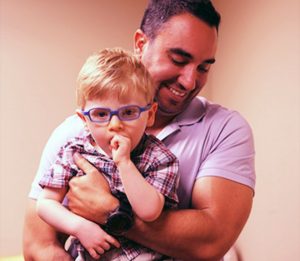 Still, the Davids knew that Colin’s needs exceeded the services that were currently available in Kansas. After talking with one of Kelly’s former instructors, Pamela Resnick, associate instructor and assistive technology specialist, the Davids realized that Colin would benefit from the wide array of augmentative and alternative communication services available at UCF’s Communication Disorders Clinic, and so they moved back to the area.
Still, the Davids knew that Colin’s needs exceeded the services that were currently available in Kansas. After talking with one of Kelly’s former instructors, Pamela Resnick, associate instructor and assistive technology specialist, the Davids realized that Colin would benefit from the wide array of augmentative and alternative communication services available at UCF’s Communication Disorders Clinic, and so they moved back to the area.
The Davids’ goal for their precious son is for him to gain “as much independence as possible,” Kelly said.
Kelly and Brian already sensed that Colin was frustrated because he wasn’t able to communicate with them; they also knew they had to communicate with Colin in a way that met his learning style. Following a comprehensive augmentative-alternative communication assessment at the UCF Communication Disorders Clinic, a low-tech communication system was recommended. Colin utilizes enlarged photograph-based True Object Based Icons (TOBIs) for choice making, formulating requests and communicating his needs.
A big motivator, laughed his parents, was food. Colin has a great appetite, Kelly said, and he is not a picky eater. Food was a great introduction into his new method of communication. The idea is simple enough, and is applicable to individuals who have other exceptionalities. Kelly and Brian have been provided with TOBIs depicting actual food items. These allow Colin to have a choice, to express what he would like to eat. One of them appears to be Colin’s favorite: a large, orange, fish-shaped cracker. “Colin will do anything for a goldfish,” Brian said.
The Davids also use visual schedules consisting of photograph-based symbols to show the narrative of how a particular activity will unfold. In their bathroom, for example, there are photos of a shirt being pulled off one’s head; of water being turned on, of hair being washed and so on. At bath time, Kelly will touch the appropriate symbol, and describe to Colin the action on the card. The goal for this exercise is to give Colin a “heads up” about what is going to happen next.
The approach has worked so well, Kelly said, that after dinner, Colin will often “butt-scoot” down the hallway to the bathroom, knowing that it is time for his bath. He will then tap the TOBI that indicates “time for bath.”
It is unknown if Colin will eventually be able to walk unaided, and that is certainly a goal for Colin, Kelly said. But mobility – the ability to move or be moved freely and easily – can come in a lot of avenues.
That’s where Jennifer Tucker, associate lecturer in the Doctor of Physical Therapy Program and director of UCF Go Baby Go! comes in. As a program of the Department of Health Professions, Go Baby Go! provides accessible, inexpensive and common-sense solutions for children and adults with limited mobility, and seeks to promote innovative options that promote participation and community integration.
 “Go Baby Go! opens an avenue for a child to control their mobility,” Tucker said, and since the program’s inception in 2015, more than 50 children have received specially modified, motorized toy cars to increase their mobility.
“Go Baby Go! opens an avenue for a child to control their mobility,” Tucker said, and since the program’s inception in 2015, more than 50 children have received specially modified, motorized toy cars to increase their mobility.
Because Colin has complex needs – both motoric and communicative issues – Resnick and Tucker knew he would be a perfect candidate for a collaboration between the speech-language pathology and physical therapy departments. Colin’s communication system has been incorporated into his specialized car to facilitate communication while meeting his motoric needs. This collaboration has also provided an added value, not only for the Colin and his family, but for both the speech-language pathology and physical therapy students, as it provides a unique opportunity for inter-professional education.
Kelly David said that ever since Colin has started coming to the clinic in January 2017, he has made “tremendous gains” in speech, communication and mobility. Resnick agreed, saying “He is very special.”
Colin’s car has graphic representations of “stop” and “go,” along with a big yellow button that he can push to accelerate. He is not totally in control; there is a switch on the back of the car that his parents or therapists can turn off or on, in accordance with Colin’s corresponding tapping of the stop and go buttons.
On this particular morning, Colin was tooling around the office at the clinic in his red car, under the watchful eye of his therapist. The Davids said they are particularly excited for Colin’s new car because “It assists him in being mobile without looking like a medical device. It’s something you’d see any typical kid using. It allows him to explore at his own pace and on his own terms,” Brian said.
The newfound mobility means that Colin will be able to “keep up” with his cousin, who’s about the same age. Brian added, “It gives him the opportunity to access his world in ways that weren’t previously possible.”
